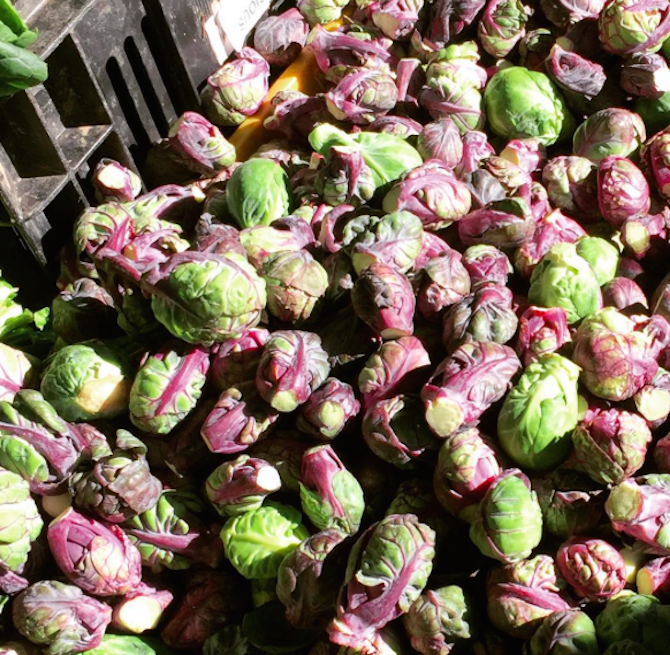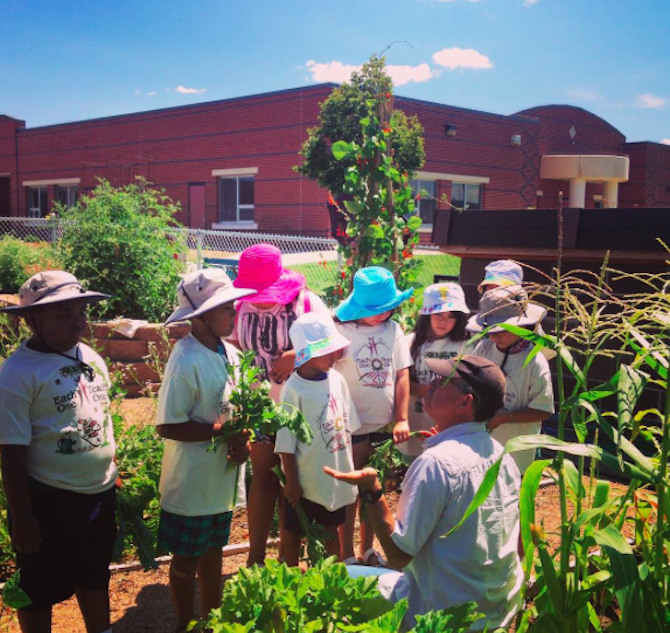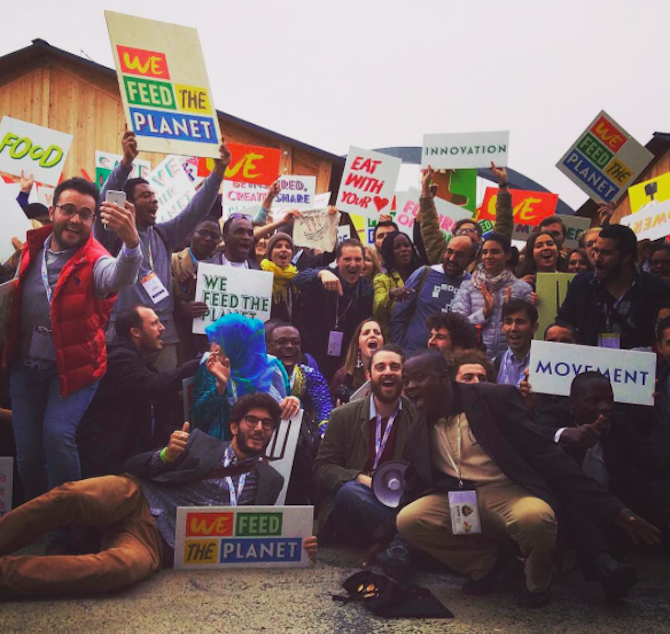Today, we live in a fast-paced world that wants food to be quick, convenient and cheap. Not only do some of us not know where our food comes from, but also many of us also do not seem to care. We either ignore or fail to see what the current industrialized food system is doing to animals, to our bodies, to the planet and to our relationship with food.
The Slow Food Movement, formed to counteract fast food and fast life, aims to change the way we think about food by focusing on the connections between plate, planet, people, politics and culture. Once this movement is more fully embraced, animals, people, and the environment will all be better off.

Photo courtesy of @uptoacres on Instagram
Overall, meat consumption continues to rise in the U.S., the European Union, and the developed world. The average U.S. resident eats 270.7 pounds of meat each year, more than double the global average and roughly five times more than we did a century ago. Our increasing demand for cheap meat has resulted in the shift from a local diet to one characterized by industrial farming.
A factory farm is an industrialized farm on which large numbers of livestock are raised indoors in conditions intended to maximize production at minimal cost. They rely on expensive inputs from off of the farm and use large quantities of non-renewable resources, such as water and fossil fuels.
The use of these resources may mean more efficient production at a lower cost, but it also concentrates the power in the hands of a few multinational corporations that consistently put profit first. These companies exploit the health of their workers, livestock and the environment to meet this demand, resulting in a long list of negative effects on animal welfare, human health and the environment.
Industrial farming is also thought to have resulted in diseases of civilization, causing an increase in antibiotic resistance, Type II diabetes, and greater risk for foodborne pathogens. Excessive consumption of meat is associated with cardiac disease and certain forms of cancer with saturated fat being the biggest culprit.

Photo courtesy of @slowfoodhq on Instagram
But wait, not all red meat is bad for us. Animals raised on corn produce fattier meat, but it is not just that it is fattier, it is the kind of fats, particularly saturated fats. Corn-fed beef produces lots of saturated fats. Thus, the heart disease associated with meat is really associated with corn-fed meat. Grass-fed beef (in moderation) is actually good for us.
Factory farms are not only harming animals and humans, but they are also having devastating effects on ecosystems, including air and water pollution, soil depletion, biodiversity loss, fish die-offs, unsustainable water usage, and climate change. As many of us know, unsustainable water usage is a major concern around the globe.

Photo courtesy of @slowfoodusa on Instagram
So what can we do? That is where the Slow Food Movement comes in.
Food is at its best when it becomes more about the social experience of sharing a meal and connecting with one another than about filling our stomachs as quickly as possible. The Slow Food movement urges us to go back to this way of thinking. We should not limit home-cooked meals to large gatherings like Thanksgiving and Christmas.

Photo courtesy of @craft_newyork on Instagram
Instead, we should be cooking in our own kitchens amongst family and friends, sharing a meal, and connecting with one another as often as possible. Life is all about the relationships that we make with others. Eating a meal alone while watching television or surfing the Internet needs to become a thing of the past. If this is done, our relationship with food, each other, and ourselves will improve.
In 1986, Carlo Petrini of Italy started the Slow Food Movement in part to save foods that were disappearing due to the rise of processed foods and modern farming. Since its inception, the movement has grown stronger, promoting a return to local, fresh ingredients promotes good nutrition while preparing and sharing meals with others is a great social experience.

Photo courtesy of @slowfoodusa on Instagram
The movement fosters awareness and responsibility for the foods that we put in our bodies, positively changing our relationship with food. By reconnecting with food, people and the natural environment we can help preserve natural resources, strengthen communities and increase our physical and mental health and wellbeing.
To do this, we first need to overhaul our current system. Sustainable agriculture is a good place to start. It aims to protect animals, public health, communities and the environment right now and for future generations. To transform our food system, we have to move away from a system that values convenient and inexpensive food to one that values local and nutritious food: we have to vote with our forks.

Photo courtesy of @slowfoodhq on Instagram
The decisions that we make every day send a clear message about what is important to us. Thus, we at Spoon ND believe that it is imperative to educate ourselves about and embrace the Slow Food Movement and push for sustainable agriculture so that we may reclaim our connection with our food, nature and one another, one meal at a time.



